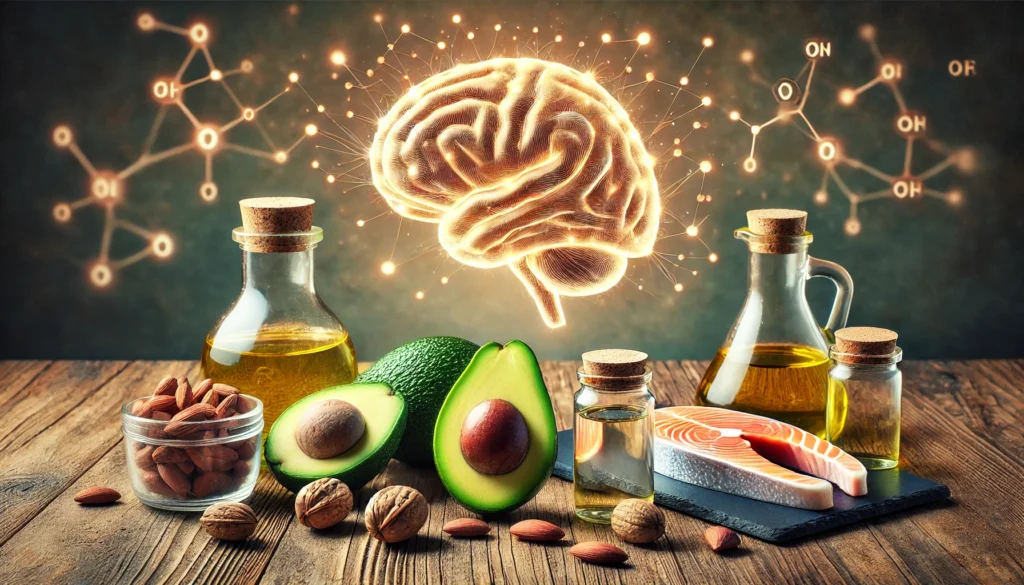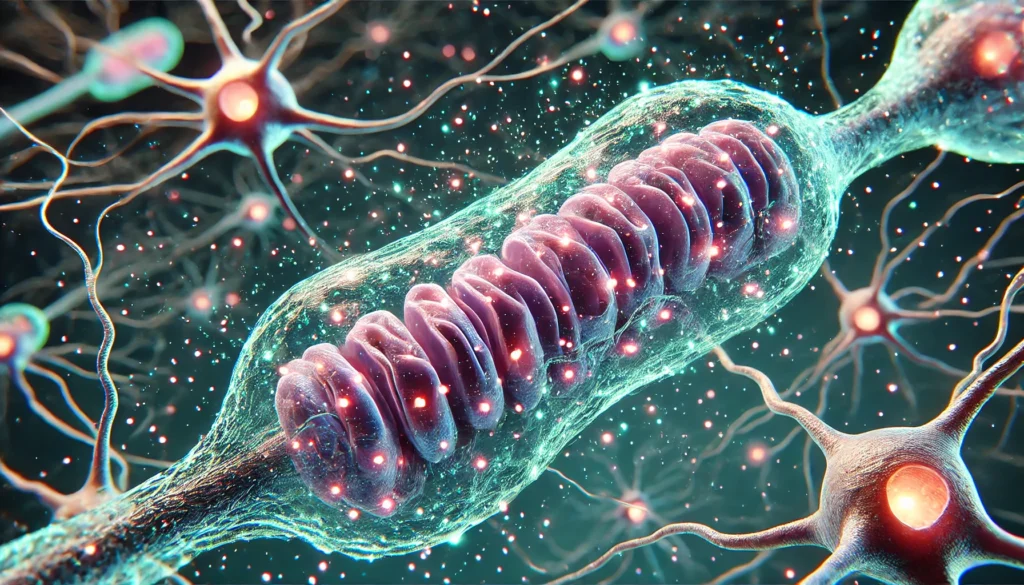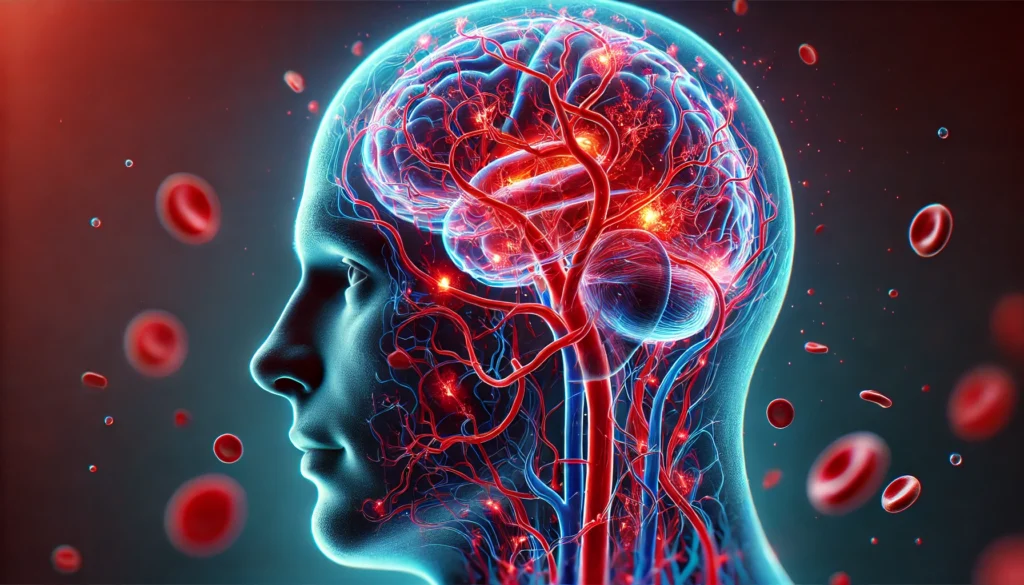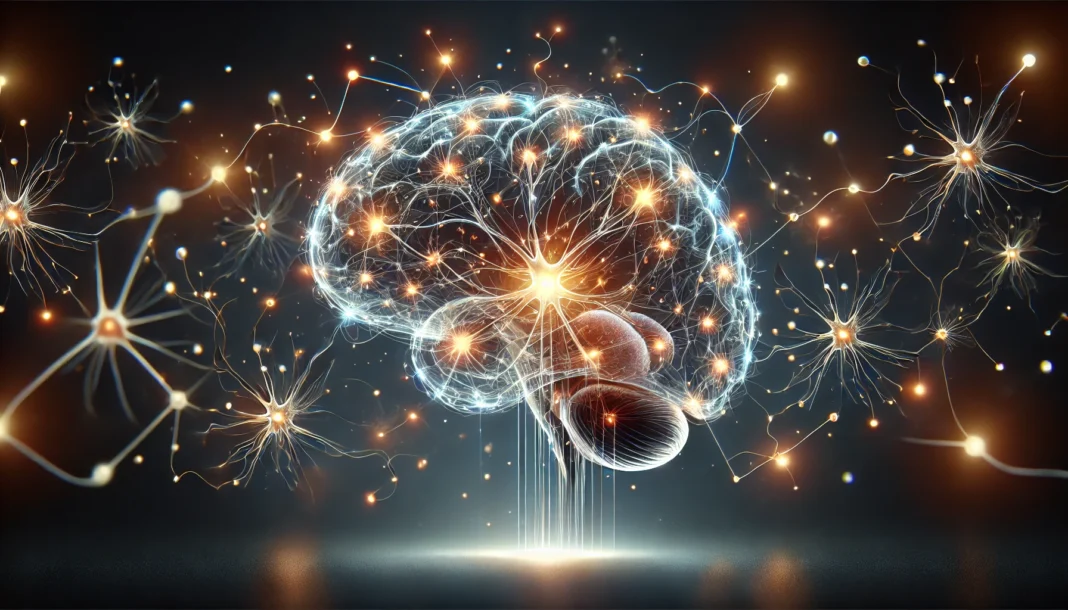Introduction
Every thought, memory, decision, and moment of focus requires a surge of biological energy. While the brain accounts for only about 2% of the body’s mass, it astonishingly consumes nearly 20% of the body’s total energy. This disproportionately high demand underscores the complexity and importance of understanding energy in the brain. The energy brain uses fuels not just essential survival functions but also the higher-order cognitive capabilities that define human intelligence—concentration, memory, emotional regulation, creativity, and reasoning. But what exactly powers this energy-hungry organ? How does the brain generate, manage, and deploy this energy with such precision? And how do nutrition, lifestyle, disease, and aging affect this delicate process?
You may also like: How Do I Fix My Brain? Proven Nutrition and Lifestyle Strategies to Manage Brain Health Naturally
Modern neuroscience and nutritional biochemistry have begun to unravel the intricate systems that regulate cerebral energy production and utilization. Glucose is often cited as the brain’s primary fuel, but alternative sources like ketones and lactate play a significant role in certain physiological and pathological states. Mitochondrial health, cellular oxygenation, and blood flow all contribute to the equation. Yet, when these mechanisms falter, cognitive dysfunction, mood disorders, and neurodegenerative diseases can follow. In this article, we’ll explore the biochemistry of brain energy, investigate how energy in the brain correlates with performance, and examine the emerging science on how to support optimal brain energetics through evidence-based strategies.

The Brain’s Energy Demands: A Biological Powerhouse
The human brain is arguably the most energy-demanding organ in the body relative to its size. Although it comprises just a fraction of our total weight, the brain continuously consumes energy even when we’re at rest. Neurons, the fundamental units of communication in the nervous system, are highly metabolically active and require a constant supply of energy to maintain ion gradients, propagate action potentials, and synthesize neurotransmitters. This uninterrupted demand explains why disruptions in blood glucose or oxygen delivery can result in rapid cognitive and neurological impairment.
The bulk of the energy brain uses goes toward signaling—particularly the transmission of information across synapses. Research shows that up to 80% of the brain’s energy is allocated to neural signaling, with the remaining portion used for maintenance of cell structure, repair, and support cell activity. This means even simple mental tasks—reading, thinking, learning—exert a metabolic cost. The brain’s dependency on efficient energy metabolism is not just critical for cognition but for survival itself.
Glucose: The Brain’s Primary Energy Substrate
Glucose is the dominant source of energy in the brain under normal circumstances. It crosses the blood-brain barrier via specialized transport proteins and is rapidly taken up by neurons and astrocytes. Once inside these cells, glucose undergoes glycolysis in the cytosol, producing pyruvate, which is then shuttled into mitochondria for aerobic metabolism through the citric acid cycle and oxidative phosphorylation. This process yields adenosine triphosphate (ATP)—the universal energy currency of cells.
Importantly, the brain lacks significant glycogen reserves and cannot store large amounts of glucose. This means that energy in the brain must be supplied continuously through the bloodstream. Even short-term hypoglycemia can lead to cognitive disturbances such as confusion, dizziness, or fainting. This is why individuals with diabetes, for instance, may experience impaired cognition during episodes of low blood sugar. The finely tuned relationship between circulating glucose levels and brain function highlights the necessity of maintaining balanced blood sugar for optimal mental performance.

Ketones and Alternative Brain Fuels
Although glucose is the brain’s primary fuel, it is not the only one. In times of glucose scarcity—such as fasting, prolonged exercise, or ketogenic dieting—the liver converts fatty acids into ketone bodies (beta-hydroxybutyrate and acetoacetate), which can cross the blood-brain barrier and serve as an alternative energy source. Interestingly, the brain adapts quite effectively to ketones, which can supply up to 60% of its energy during periods of extended fasting or carbohydrate restriction.
Emerging research suggests that ketones may offer neuroprotective benefits. They produce fewer reactive oxygen species compared to glucose metabolism, which could reduce oxidative stress in neurons. Moreover, ketone metabolism may enhance mitochondrial efficiency and preserve cognitive function in aging or neurological disorders. Understanding how the brain shifts its energy reliance under different metabolic conditions is vital to appreciating the full picture of brain energetics.
Mitochondrial Function and Brain Energy Efficiency
Central to energy generation in the brain are mitochondria—organelles often described as the powerhouses of the cell. These structures convert energy substrates like glucose and ketones into ATP through oxidative phosphorylation. Mitochondria are especially dense in neurons because of their immense energy requirements.
Mitochondrial dysfunction has been implicated in a wide range of neurological conditions, including Alzheimer’s disease, Parkinson’s disease, multiple sclerosis, and chronic fatigue syndrome. When mitochondria fail to produce sufficient energy, neural activity slows, repair processes falter, and vulnerability to oxidative stress increases. Therefore, supporting mitochondrial health is a cornerstone of strategies to enhance the energy brain uses.
Nutrients such as CoQ10, acetyl-L-carnitine, alpha-lipoic acid, magnesium, and B-vitamins play important roles in mitochondrial energy production. Lifestyle factors—like aerobic exercise, intermittent fasting, and quality sleep—also support mitochondrial biogenesis and function. A holistic approach to maintaining mitochondrial efficiency can yield significant benefits for both mental clarity and long-term brain health.

Brain Energy and Cognitive Performance
The direct link between energy in the brain and cognitive performance is increasingly well-documented. When energy availability is optimal, neurotransmission is smooth, attention is sharp, and memory formation is robust. Conversely, energy deficits in the brain—whether due to poor diet, metabolic disorders, or oxidative stress—can impair these functions dramatically.
Functional brain imaging studies, such as PET and fMRI, demonstrate that cognitive tasks increase regional glucose uptake and cerebral blood flow in the areas engaged in processing. This suggests a demand-driven model, where energy brain uses is modulated by the intensity of mental activity. Chronic stress, lack of sleep, and nutritional deficiencies all disrupt this balance and contribute to mental fatigue.
Understanding this dynamic has practical implications for enhancing productivity, academic performance, and executive function. Nutritional neuroscience is rapidly expanding its focus on nootropics, adaptogens, and metabolic enhancers that support cerebral energy metabolism. Substances like creatine, Rhodiola rosea, and phosphatidylserine have shown potential in improving mental stamina by optimizing energy pathways in the brain.
The Role of Nutrition in Brain Energy Metabolism
Nutritional status profoundly influences the availability and efficiency of energy brain uses. Macronutrients provide the substrates—glucose, ketones, amino acids—while micronutrients serve as cofactors in enzymatic reactions involved in energy metabolism. Deficiencies in key vitamins and minerals can result in sluggish brain function, poor memory, and mood instability.
B-vitamins, particularly B1 (thiamine), B6 (pyridoxine), B9 (folate), and B12 (cobalamin), are essential for the conversion of glucose into ATP. Magnesium acts as a cofactor for ATP synthesis, while zinc and selenium are vital for antioxidant defenses. Omega-3 fatty acids, notably DHA, support membrane fluidity and mitochondrial efficiency.
Polyphenols found in berries, cocoa, and green tea may also enhance cerebral blood flow and energy efficiency. Moreover, the gut-brain axis—the complex communication network between the gastrointestinal tract and central nervous system—suggests that a healthy microbiome may indirectly influence brain energetics through metabolite production and immune modulation.
Blood Flow and Oxygen Delivery to the Brain
Energy metabolism in the brain is intricately tied to vascular health. The delivery of oxygen and glucose is dependent on robust cerebral blood flow. Conditions like hypertension, atherosclerosis, and impaired endothelial function can reduce perfusion and limit the energy brain uses for optimal cognition.
Nitric oxide (NO) is a key molecule in regulating vasodilation. Nutritional strategies to support NO production include the consumption of nitrate-rich vegetables (such as beets and spinach), adequate L-arginine, and regular aerobic activity. Additionally, antioxidants like vitamin C and E can protect endothelial cells and promote blood vessel integrity.
Exercise, especially cardiovascular training, increases cerebral blood flow and stimulates the release of brain-derived neurotrophic factor (BDNF), a protein that supports neuron survival, growth, and synaptic plasticity. This reinforces the role of movement not just in cardiovascular health, but in sustaining energy levels in the brain.
Neuroinflammation and Its Impact on Brain Energy
Inflammation in the brain—whether due to infection, injury, toxins, or autoimmune activity—disrupts energy metabolism. Activated microglia, the brain’s resident immune cells, can interfere with neuronal function and mitochondrial performance. Chronic neuroinflammation is increasingly implicated in conditions like depression, anxiety, and cognitive decline.
One mechanism involves cytokines altering neurotransmitter balance and reducing synaptic efficiency. Inflammatory markers also impair insulin signaling in the brain, reducing glucose uptake and utilization. As a result, the energy brain uses becomes limited, and fatigue, brain fog, and mood swings can emerge.
Anti-inflammatory nutrients—such as curcumin, resveratrol, and omega-3s—along with sleep optimization and stress management techniques can help reduce neuroinflammation. This highlights the multidimensional approach required to maintain healthy brain energy levels.

Aging and the Decline of Brain Energy
Aging naturally brings about a decline in mitochondrial efficiency, cerebral perfusion, and neurotransmitter availability—all of which affect energy in the brain. With time, neurons accumulate damage from oxidative stress, and the brain becomes less metabolically flexible. This can contribute to memory lapses, slower processing speed, and increased susceptibility to neurodegenerative disease.
However, research shows that these declines are not inevitable. Lifestyle interventions, including caloric moderation, intermittent fasting, cognitive engagement, and nutrient-dense diets, can support mitochondrial resilience and neuroplasticity well into older age.
Pharmacological and nutraceutical strategies aimed at enhancing brain energy are also being explored. Compounds like NAD+ precursors, PQQ (pyrroloquinoline quinone), and mitochondrial-targeted antioxidants are showing promise in early studies for their ability to preserve cognitive function and energy production.
The Future of Brain Energy Research
As our understanding of neuroenergetics deepens, so too does the potential for targeted interventions that optimize the energy brain uses. Precision nutrition, wearable neurotechnology, and neuroimaging tools are converging to personalize strategies for enhancing mental performance and resilience.
Future research may reveal novel energy substrates, new therapeutic targets within mitochondria, and more nuanced understanding of how sleep, circadian rhythms, and even environmental pollutants influence brain energy. The convergence of neuroscience, metabolism, and nutritional science holds enormous promise for preventing cognitive decline and enhancing human potential through better brain energetics.
Frequently Asked Questions
1. What type of energy does the brain use?
The brain primarily uses chemical energy in the form of adenosine triphosphate (ATP), which is generated through the metabolism of glucose and, under certain conditions, ketones. This energy powers everything from basic neural maintenance to complex cognitive functions. Maintaining an adequate and consistent supply of these fuels is essential for normal brain function, especially since the brain cannot store significant energy reserves.
2. How does the brain get its energy during fasting?
During fasting, the body shifts from using glucose to producing ketone bodies from fat stores in the liver. These ketones cross the blood-brain barrier and are metabolized by neurons to generate ATP. This metabolic flexibility helps maintain energy in the brain during periods of low carbohydrate availability. Many researchers believe this mechanism contributes to the mental clarity reported during fasting states.
3. How much energy does the brain consume?
The brain consumes roughly 20% of the body’s total energy expenditure, despite accounting for only 2% of body weight. Most of this energy is used to support synaptic activity, signal transmission, and basic cellular maintenance. This high energy consumption highlights why disruptions in metabolism can lead to rapid cognitive impairments.
4. What happens when the brain lacks energy?
When energy brain uses is insufficient, neurons cannot maintain their electrical gradients, neurotransmitter release becomes impaired, and overall function deteriorates. Symptoms may include brain fog, confusion, fatigue, mood changes, and in severe cases, loss of consciousness or seizures. Chronic energy deficits are also associated with long-term cognitive decline and mental health disorders.
5. Can food improve brain energy levels?
Yes, nutrient-dense foods that support mitochondrial function, regulate blood sugar, and reduce inflammation can significantly enhance energy in the brain. Foods rich in B-vitamins, magnesium, omega-3s, and antioxidants are particularly beneficial. Avoiding refined sugars and processed foods can help maintain stable glucose supply, preventing crashes in mental energy.
6. How do mitochondria impact brain energy?
Mitochondria are essential for producing ATP through oxidative phosphorylation. In the brain, they are especially critical due to the high energy demand of neurons. When mitochondrial function declines due to aging, toxins, or genetic defects, it leads to impaired neural activity, increased oxidative stress, and greater susceptibility to neurodegenerative diseases.
7. Is exercise beneficial for brain energy?
Yes, exercise enhances cerebral blood flow, increases oxygen and nutrient delivery, and stimulates mitochondrial biogenesis. It also promotes the release of neurotrophic factors like BDNF, which support neuron health and plasticity. Regular physical activity is one of the most effective ways to improve the energy brain uses for both immediate performance and long-term health.
8. Can stress affect brain energy levels?
Chronic stress increases cortisol and inflammatory cytokines, which impair glucose metabolism and mitochondrial function in the brain. This can lead to symptoms such as mental fatigue, poor concentration, and mood disturbances. Stress management techniques—such as mindfulness, breathing exercises, and adequate sleep—are crucial for protecting brain energy metabolism.
9. Are there supplements that help with brain energy?
Several supplements have been studied for their role in enhancing energy in the brain. These include CoQ10, creatine, acetyl-L-carnitine, alpha-lipoic acid, and B-vitamins. Some adaptogens and nootropics, like Rhodiola and phosphatidylserine, may also support energy metabolism under stress. It’s important to consult with a healthcare provider before starting any new regimen.
10. How does aging affect brain energy metabolism?
Aging reduces mitochondrial efficiency, increases oxidative damage, and often involves reduced blood flow to the brain. These changes impair the energy brain uses for cognitive and emotional regulation. However, lifestyle factors like diet, exercise, cognitive stimulation, and targeted supplementation can help slow or even reverse some of these age-related declines.

Conclusion
The brain’s energy demands are both extraordinary and essential. From regulating basic physiological functions to supporting complex thought and emotion, energy in the brain underpins every aspect of our mental lives. Understanding how the energy brain uses is generated, distributed, and preserved opens the door to powerful interventions for enhancing cognitive function, mood, and long-term neurological health.
While glucose remains the brain’s primary fuel, alternative substrates like ketones and lactate offer insights into metabolic flexibility. Mitochondrial health, vascular integrity, nutrient status, and inflammation all influence the efficiency of brain energetics. Importantly, these systems are dynamic and responsive to lifestyle choices—from the food we eat to the ways we move and rest.
Science continues to uncover new connections between metabolism and brain function, highlighting the importance of a holistic, proactive approach. Whether through nutrition, exercise, stress reduction, or targeted supplementation, optimizing the energy brain uses may be one of the most impactful strategies for achieving cognitive vitality across the lifespan.
Was this article helpful? Don’t let it stop with you. Share it right now with someone who needs to see it—whether it’s a friend, a colleague, or your whole network. And if staying ahead on this topic matters to you, subscribe to this publication for the most up-to-date information. You’ll get the latest insights delivered straight to you—no searching, no missing out.



